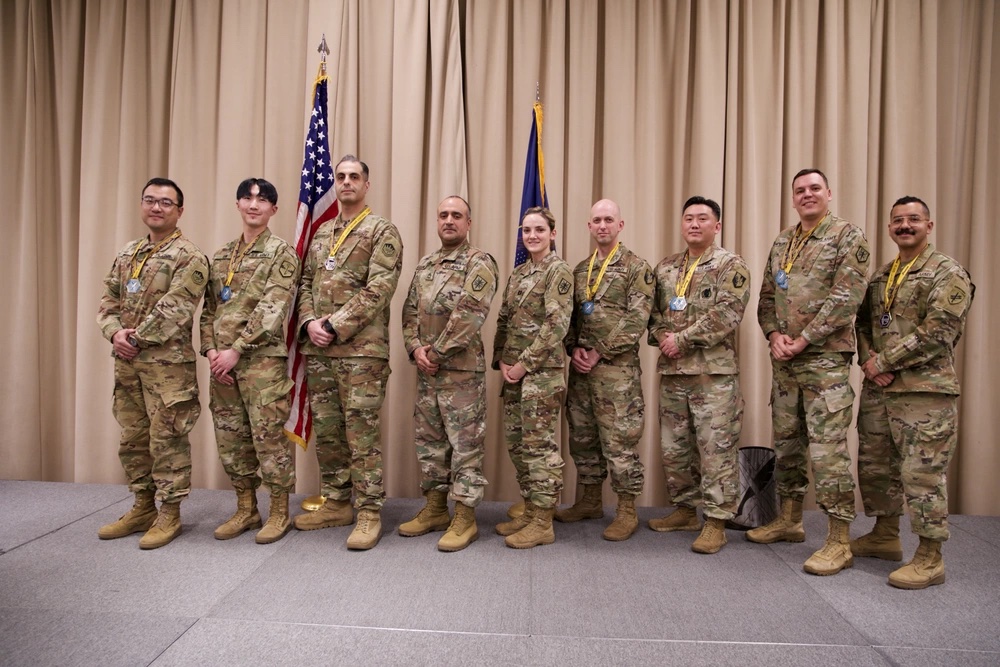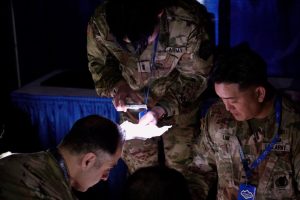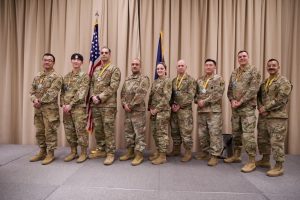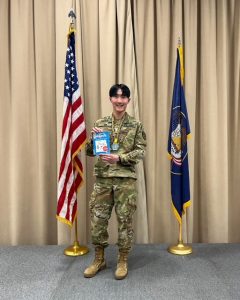
February 18, 2024
Tony Qin, a second-year doctoral student in the Department of Computer Science, shares his fusion experience of academic excellence and military commitment. As he navigates the landscape of computer science and military service, Tony serves as an inspiration to aspiring professionals seeking to tread similar paths.
 Qin is currently working on medical robotics under the mentorship of Professor Ron Alterovitz. Alongside his academic achievements, Qin holds the rank of first lieutenant and serves as a platoon leader in the United States Army Reserve. With each endeavor, he solidifies the idea that excellence spans across different fields, emphasizing versatility and commitment as key components for success.
Qin is currently working on medical robotics under the mentorship of Professor Ron Alterovitz. Alongside his academic achievements, Qin holds the rank of first lieutenant and serves as a platoon leader in the United States Army Reserve. With each endeavor, he solidifies the idea that excellence spans across different fields, emphasizing versatility and commitment as key components for success.
Qin’s academic trajectory began with a bachelor’s degree from Carnegie Mellon University, where his passion for computer science was nurtured. Inspired by his father, who also studied computer science, Qin found joy in the complexities of coding and the possibilities it offered. His decision to pursue a doctorate in computer science stemmed from a desire to enhance his leadership skills and innovate within his field.
In an interview, Qin shed light on his unique journey, offering insights into the intersection of academia, military service, and extracurricular pursuits. Here is a glimpse into his story:
Nurturing Skills and Balancing Commitments
Transitioning from undergraduate studies to a doctoral program brought forth a shift toward self-directed learning. Qin reflected on the transition, emphasizing the need for self-motivation in expanding research within his doctoral program. Balancing academic pursuits with his commitment to the United States Army Reserve posed its challenges, but his disciplined approach allowed him to seamlessly integrate both into his life.
A Triumph at the Polyglot Games
Qin’s participation in the Polyglot Games—a prestigious military language competition where soldiers showcase their proficiency in multiple languages through challenge—showcased his versatility beyond the realms of computer science. Competing in French, Qin’s team clinched the top spot, navigating through linguistic challenges with finesse. He said that the competition not only honed his language skills but also instilled valuable lessons in teamwork and critical thinking.
Connecting Languages and Coding
Drawing parallels between learning languages and mastering coding languages, Qin highlights the interconnectedness of the two domains. His proficiency in French and Mandarin mirrors the cognitive agility required in deciphering programming syntax, reinforcing the notion of continuous learning and adaptation.
Future Endeavors and Words of Wisdom
Looking ahead, Qin plans to continue his involvement in competitions like the Polyglot Games, leveraging his linguistic skills to unlock new opportunities within the military landscape. Reflecting on his journey, he emphasizes the importance of teamwork, maintaining a ‘people-first’ mentality, and virtues essential not just in academia, but also in military endeavors.
Transitioning from structured undergraduate studies to the self-directed nature of doctoral research, Qin emphasizes the importance of discipline and motivation —qualities he has honed through military training.
—qualities he has honed through military training.
Qin’s participation in the 2024 Polyglot Games earlier this month, where his team secured first place, underscores his diverse skill set and dedication to excellence. Language proficiency, akin to mastering programming languages, emphasizes the interconnectedness of disciplines and the importance of continuous learning.
Looking ahead at future Polyglot games, Qin aims to refine his approach by focusing on specialized vocabulary relevant to the military scenarios, such as cybersecurity, further leveraging his skill set.
Tony’s journey offers valuable insights for those navigating similar paths. Prioritizing goals, maintaining discipline, and embracing challenges are key lessons drawn from his experiences.
